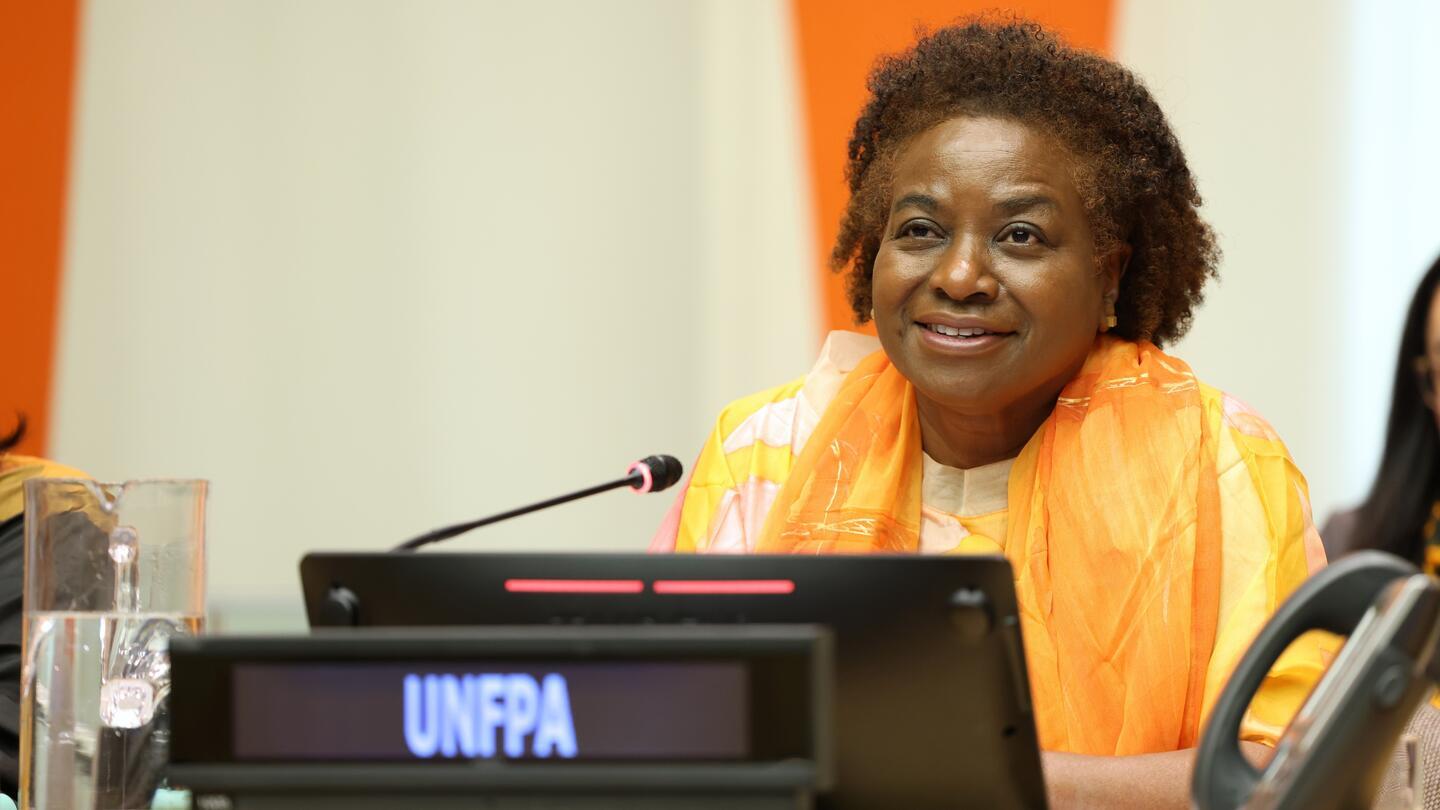As 2024 draws to a close we at UNFPA have one resounding call: Peace. Peace on earth for all people, particularly for the women and girls we serve, caught up in crises not of their own making.
This has been a year wracked by violence and instability as new wars raged, protracted conflicts seethed, and the climate crisis deepened. We saw devastating conflicts intensify in Gaza, Sudan and Ukraine, while violence escalated in Haiti and Lebanon, and protracted crises from Afghanistan to Syria to Yemen left communities increasingly fragile. In 2024, the planet’s hottest year on record, climate-driven storms, floods and drought displaced millions, from Cameroon and Nigeria to Bangladesh and the Philippines.
Women and girls were often singled out for suffering, raped and assaulted by armed men as a tactic of terror and war in the Democratic Republic of the Congo, Haiti, Sudan and beyond.
Hunger – made worse or triggered by man-made conflict – stalked and killed people the world over, leaving millions of pregnant women malnourished.
Even as the number of hungry, sick and wounded rose, healthcare services were targeted for attack. In Gaza, Lebanon, Sudan and elsewhere, hospitals and health facilities have been pummeled to rubble, starved of supplies and fuel, besieged and attacked, over and over again.
Tragically, 2024 was also the deadliest year for aid workers, with more than 280 humanitarians killed, as insecurity rose, humanitarian space shrank, and disregard for international humanitarian law grew.
Yet pregnancy and childbirth do not stop for war. Women and girls continue to need protection from violence. Human rights do not end when disaster strikes. They do not stop at a border. The needs of women and girls do not cease when they seek safety. That is why UNFPA remains by their side.
In the first nine months of this year, as we responded in 59 crisis-affected countries, UNFPA reached more than 10 million people with sexual and reproductive health services and 3.6 million people with gender-based violence prevention and response. We backed 1,600 safe spaces and provided more than 3,500 health facilities and hospitals with equipment, supplies, medicines and personnel so that women could give birth safely.
In Sudan, the world’s largest humanitarian crisis, where protection needs have soared, UNFPA supported 51 safe spaces for women and girls, deployed 90 mobile health teams and provided supplies and equipment to 124 health facilities.
In Gaza we supplied 35 health facilities with medicine and equipment, deployed containerized clinics offering emergency obstetric care, and provided 20,000 people with blankets and sanitary items.
In Lebanon UNFPA surgical supplies and medicines supported maternal health services for displaced women at 30 hospitals across the country.
In Syria we provided reproductive health support for tens of thousands of returnees at border crossings and other hubs.
In Haiti, UNFPA supported hospitals with medicines and equipment and deployed mobile health units to Port-au-Prince for women who could not safely reach hospitals or clinics.
In the Sahel, UNFPA-supported midwives are a lifeline for women cut off from access to vital maternity services, due to conflict, climate-driven disasters and displacement.
As the war ground on in Ukraine, UNFPA reached close to 1 million people with sexual and reproductive health services, and gathered demographic data to support the government as it grappled with demographic uncertainty, including loss of human capital.
In all these situations, UNFPA works with local partners, including women-led organizations, so that those on the front lines — who know their communities best — are empowered to lead in crisis responses.
We also work in close collaboration with our United Nations partners in humanitarian settings, where UNFPA is the global leader on sexual and reproductive health and the largest provider of gender-based violence services, coordinating the humanitarian system’s collective prevention and response efforts.
Next year, we expect more than 11 million pregnant women to require humanitarian aid, and more than 92 million will need gender-based violence support. With humanitarian funding lagging far behind rising needs, their lives and futures hang in the balance.
At the same time, sexual and reproductive health and rights are under siege in many places, with alarming rollbacks and potential funding cuts, putting services for women and girls at even greater risk. UNFPA’s crisis response is underfunded by as much as 75 per cent in some countries, and we project this funding gap to widen even further next year.
At the core of UNFPA’s work is a simple, unwavering belief: No woman should die while giving life, and no woman or girl should live in fear of violence.
Time and time again, the evidence shows that when women and girls can access the sexual and reproductive healthcare that is their right, their communities and entire societies benefit, putting us all on the path to a more sustainable future.
UNFPA’s 2025 Humanitarian Action Overview calls for $1.4 billion to reach 45 million women, girls and young people in 57 crisis-afflicted countries. This support is essential to save lives, sustain health and protect people from violence. It is also an affirmation of every woman and girl’s right to live in peace and dignity. The women and girls in crisis-affected countries deserve nothing less.


